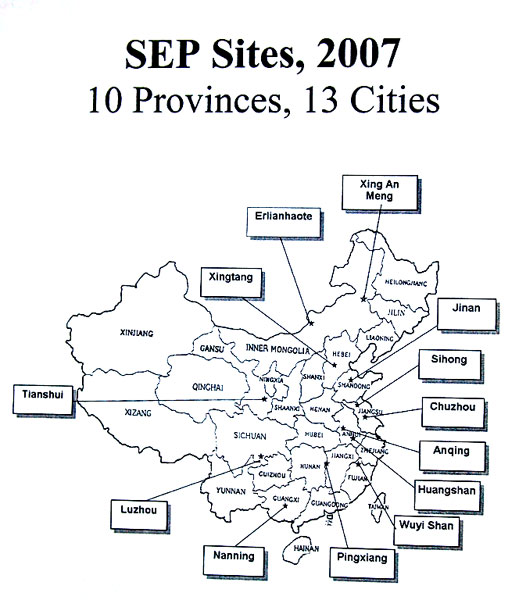
Amity Orientation Conference
The Orientation Conference run by the Amity Foundation was designed to help prepare us for teaching English when we head off for the various teaching sites. Fifty nine people are participating as teachers in this program. They come from U.S.A., Canada, and Great Britain. They are from different denominations; with ten of the fifty nine being American Baptists, we are pretty well represented here. I was surprised at how many of the teachers in the 2007 Summer English Program had taught in this program in earlier years. I don't have statistics, but I seemed to meet more repeat teachers than first-timers like us.

They will be teaching at 13 different sites in
10 different provinces, ranging from Xing An Meng in Inner Mongolia Province in the north to Nanning in
Guangxi Province in the south, and as far west as Luzhou in Sichuan Province in
central China.
In the opening plenary session, Stephen Ting, Professor of English at Nanjing University gave us an interesting overview of the evolution of China since 1949 from a political and economic viewpoint. He noted that, in the last 30 years, China has ended the communes, brought in extensive foreign investments, and encouraged private enterprise and creativity, so that it has effectively recreated the capitalist class that it tossed out earlier. He also readily admitted that the very dynamic economy has been achieved at high human and environmental cost that has brought in crime, poverty, and corruption. He said that the Church has not played its prophetic role in China, but, instead, has been "out of touch and ignorant of what is happening at the grassroots level." He sees some positive trends today, with more people concerned about the human cost.
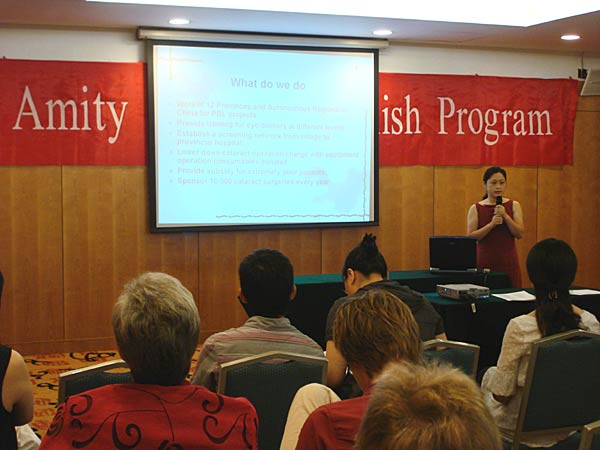
Zhang Jing, a professor at Nanjing Union Theological Seminary,
gave an update on the Church in China. The Cultural Revolution (1966-1976)
basically outlawed religion in China. Churches were reopened and Bible printing
restarted in 1979. The Church has grown rapidly since then; as of 2003 (the last
year for which data is available), there were 16 million Protestant Christians,
14,000 churches, and 30,000 meeting points, and 2,000 ordained pastors. While
religion is merely tolerated officially, she said that the government is
starting to see religion as a positive influence because it contributes to
political stability.
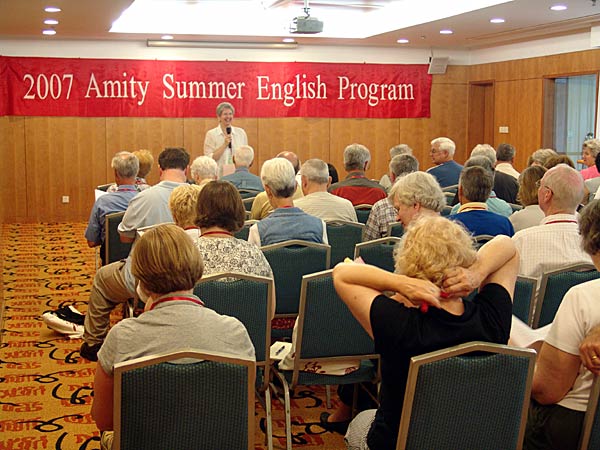
Kim Strong, from the Hong Kong office of Amity, led singing,
devotions, and
a couple of other sessions.
The conference had several workshops focused on different teaching skills, problems to expect, and background information.
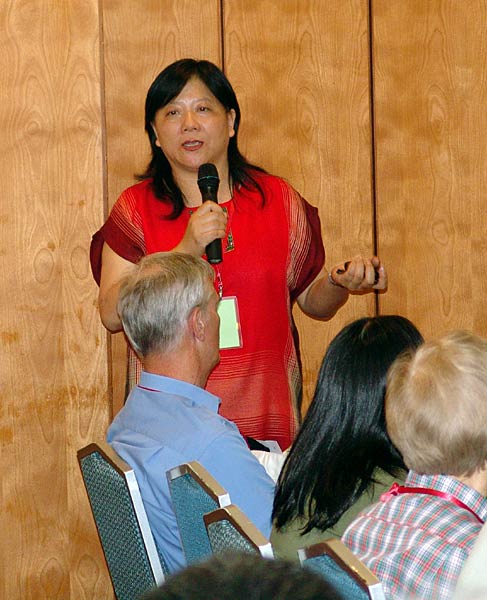
Ruhong Liu, Director of the Education Division of Amity (the
Summer English Program is a project of her division) is responding to a question
about how we should respond if asked about issues that are politically sensitive
in China . Apparently, that has
happened occasionally.
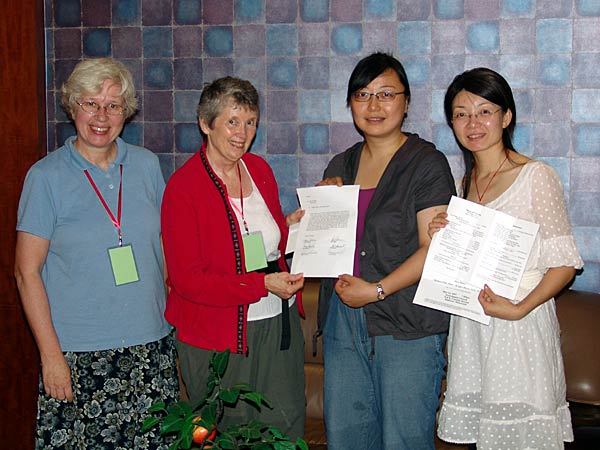
Judy and Linda presenting a letter describing our church's
contribution to the Aids Orphans project to Joyce Zhang, project coordinator,
and Helen Zhao, Deputy Director of the Integrated Development Division of Amity.
The contribution ($1,020) was greatly appreciated and will be used as intended.
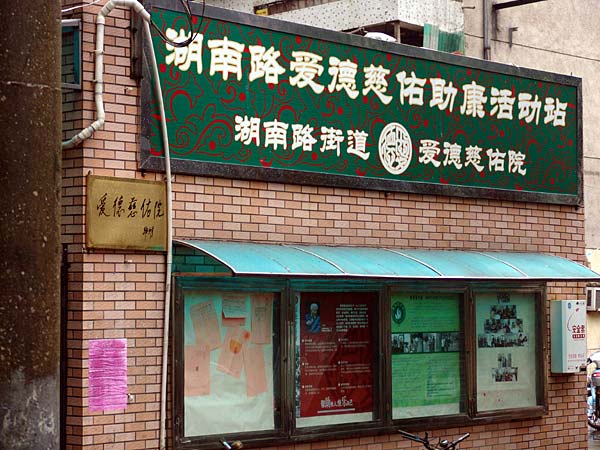
As part of the conference we had a chance to do some sightseeing
in Nanjing or visit one of their projects. I chose to visit the Home of
Blessings, which is a school for people between the ages of 16 and 40 with
learning disabilities and mental disorders. In addition to the students at this
building they work in neighborhood centers around the city. They stress
development of social and job skills so that the students can become
self-supporting and eventually live independently.
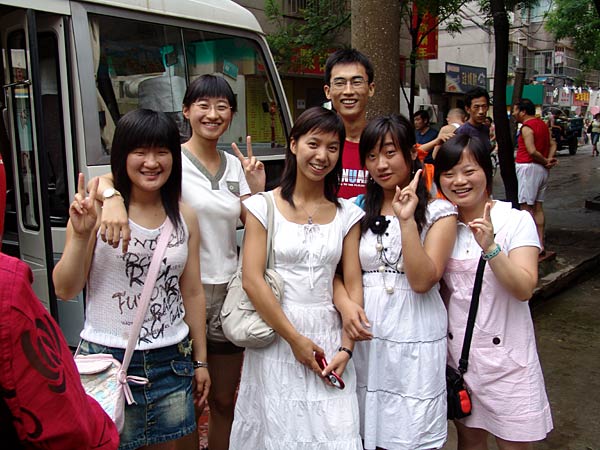
I couldn't take any pictures of the students (for protection of
privacy); these are some of the staff and volunteers at the center. They were
very appreciative of our visit and seemed genuinely interested in the welfare of
their students.
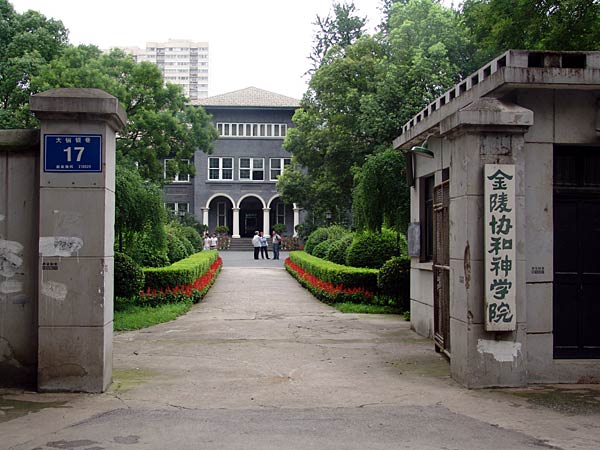
The conference concluded with a worship service at Nanjing Union
Theological University. Judy will start teaching here in September, so it was
interesting to see where she will be working.
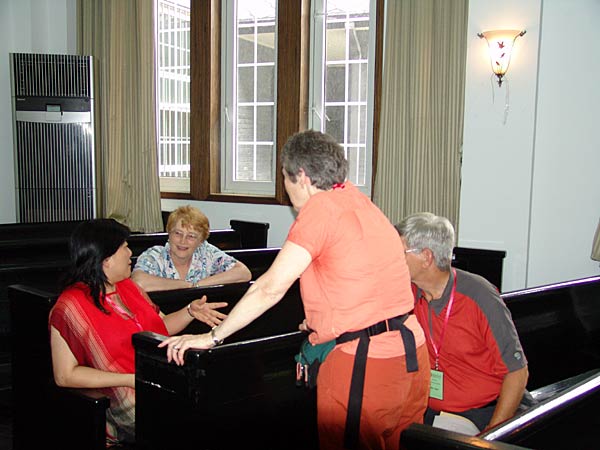
Nancy, Linda, and Bob are having a chat with Ruhong Liu of the
Amity Foundation before the worship started.
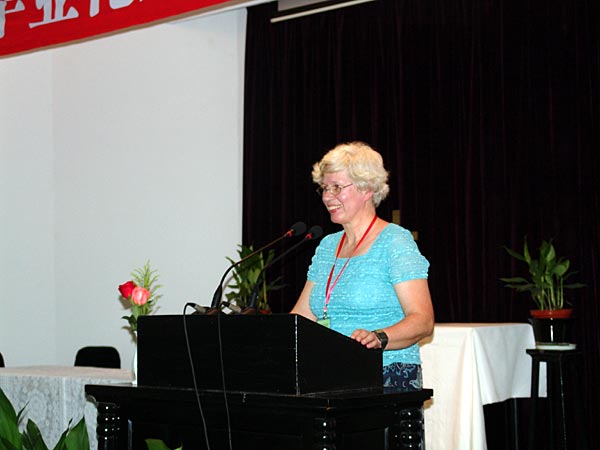
Judy gave the sermon which was on treasure; this was very
appropriate since the theme of the conference was "Better than gold".. She is a very good preacher, but I was
glad that she followed the American model and kept it short.
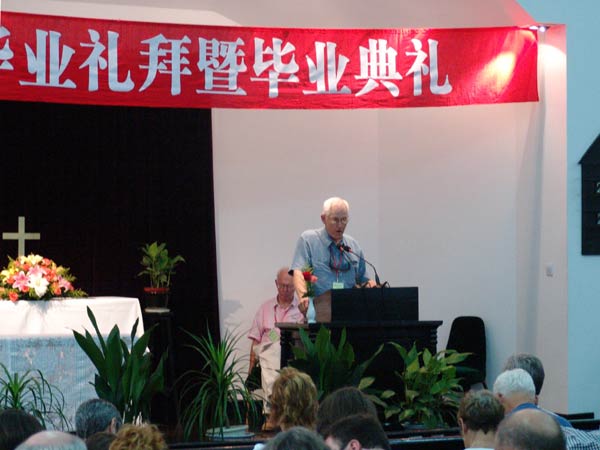
Vern gave one of the prayers. The banner above him refers to the
fact that the seminary will be graduating a new class of ministers the next day.

After the worship we had the final conference dinner at this restaurant. It was originally part of a 500 year old Buddhist temple (note the pagoda behind the restaurant). The menu for the dinner turned out to be entirely vegetarian, with many very interesting dishes. It was a most unusual and excellent meal.
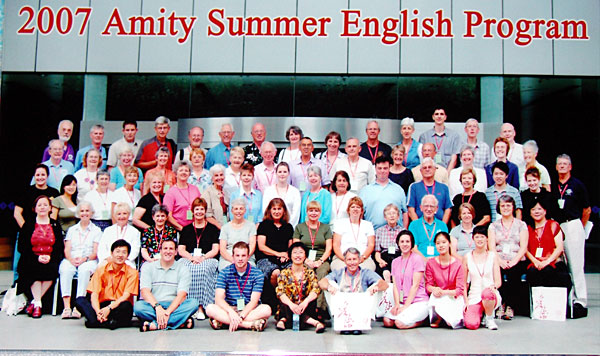
The group at the conference. The teachers will be heading out to
various sites tomorrow. We will take the train to Jinan, where we will meet with
people from the Shandong Institute of Education and start making more detailed
preparations for our three weeks of teaching English.